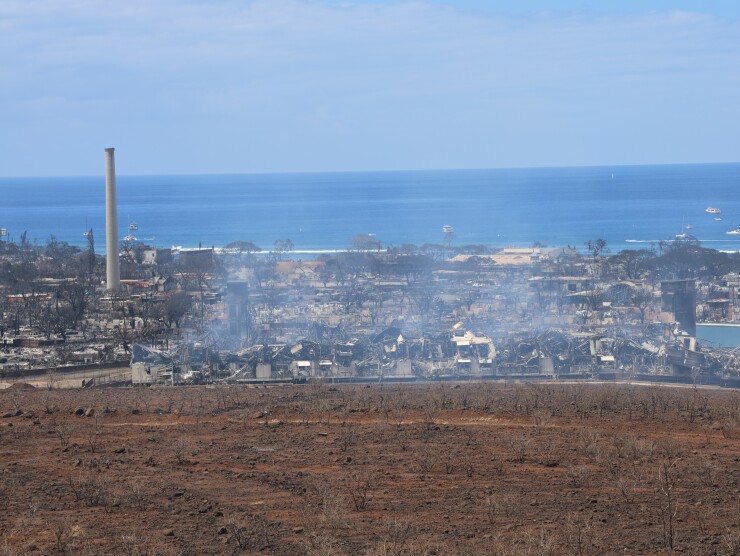The Federal Emergency Management Agency’s response to the wildfires that took the Hawaiian island of Maui by storm will likely add pressure to negotiations to replenish its already dwindling Disaster Relief Fund, which will be a major focus when Congress returns from recess Sept. 5.
The wildfires that destroyed at least 20 square miles, 13,000 acres and wiped out the coastal town of Lahaina is estimated to cost the state $6 billion, much of which will have to be fronted by the state and recouped by way of FEMA grants.
“We put together a Temporary Housing Task Force to work with our federal partners,” said Hawaii Governor Josh Green. “We’ve already secured 1,000 rooms. Five hundred rooms will go to families that have been displaced because of the terrible fire, the other 500 rooms will go to support, initially. In the days that follow, we’ll have long-term rentals, those are the short-term rentals-turned-long-term. All of that is going to be covered, some by the state, some it’s going to be given charitably and finally, FEMA will cover a great deal of the cost.”
More than 300 FEMA personnel are deployed in Hawaii and so far, FEMA has provided 50,000 meals, 75,000 liters of water, 5,000 cots and 10,000 blankets to the Maui county government for distribution.
FEMA has encouraged survivors of the wildfires to register with the government, ensuring an immediate payment of $700 and by Monday afternoon, more than 3,000 people had registered with FEMA to receive federal assistance, according to Jeremy Greenberg, director of the agency’s operations division.
FEMA’s Disaster Relief Fund is expected to run a $133 million deficit by the end of the month and run a shortfall of $8.6 billion by late September, FEMA projected last month. But providing FEMA’s Disaster Relief Fund with an additional $12 billion is currently fated in with and may be held hostage by providing additional military aid to Ukraine.
Caitlin Durkovich, deputy homeland security advisor for resiliency and response downplayed the concerns promising that government officials will be working with Congress to replenish the Disaster Relief Fund and committed to making sure Hawaii receives “the full breadth of what the federal government can deliver,” she said.
While those issues may soon be ironed out when Congress returns from its Summer recess, state and local governments in Maui may have bigger issues to consider outside of how much of the damage is recouped by FEMA.
“Despite its long-standing reputation, and reliance on generally stable property taxes, Maui remains highly exposed to the inherent volatility of the tourism industry,” a Moody’s credit opinion on Maui County said.
The total cost of the wildfires won’t be known for some time, but how long tourists stay away from the island will play a large role in its recovery.
